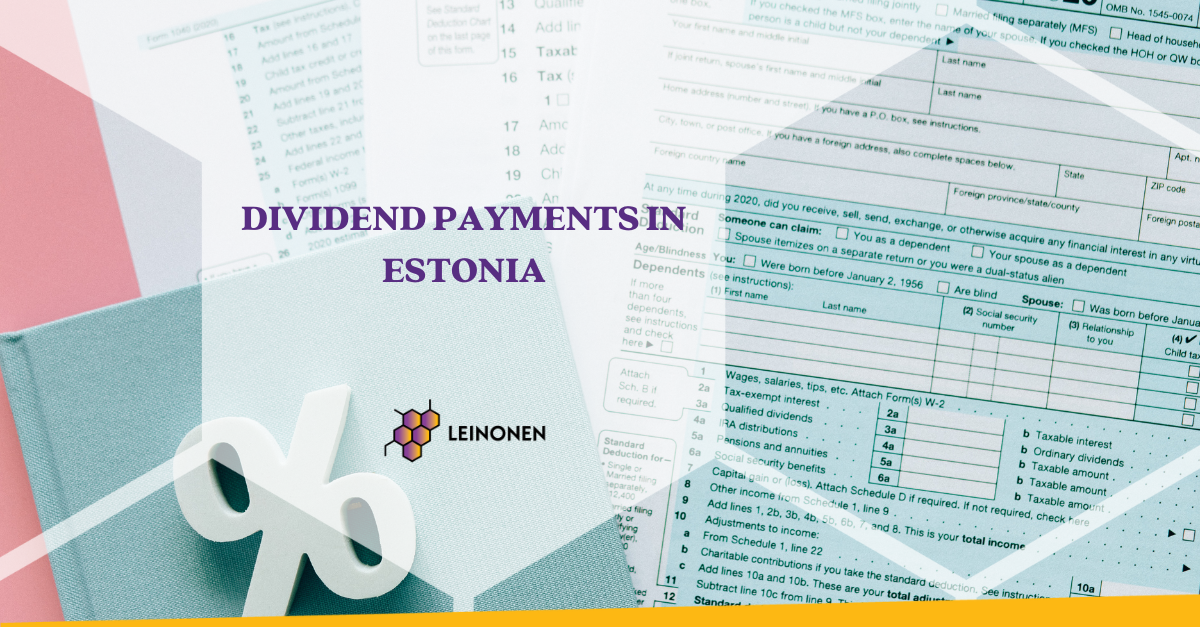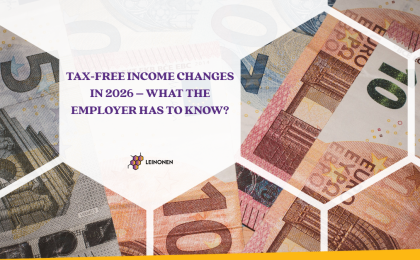Here is an overview of the dividend payment regulation regarding the two most popular company types in Estonia – private limited companies and public limited companies.
When, by whom and under what conditions dividends can be distributed
Paying dividends means the distribution of profit, thus undistributed profit must exist to pay any kind of dividends. With the consent of the shareholder, the dividend may also be paid in other assets and not in money. The dividend shall be paid by the company.
The main grounds for paying dividends are:
- The share capital of the company must be fully paid.
- The approved annual report of the company (exception for public limited companies – see interim dividends) that shows there is profit that can be distributed (current financial year and/or previous financial years).
- The shareholders make a decision to pay dividends.
- The payment of dividends cannot damage the solvency of the company and the company equity must remain in the amount of at least half of the share capital amount.
In case the company shareholders decided on a simplified reduction of share capital (to cover losses) no dividends shall be paid to the shareholders during the financial year on which the decrease of the share capital was decided and for the two subsequent financial years.
Timing of payment and consequences of non-payment of dividends
Generally, the shareholder’s decision sets a payment date to the dividends or there is a payment date in the articles of association of the company. If no date has been set, the dividends shall be paid out during a reasonable time. The shareholder’s decision to pay dividends creates a claim against the company and this claim will expire in 3 years. In case of non-payment, the shareholder may also demand an interest of non-payment.
The shareholders can decide on the dividend payment when they approve the annual report but it is not mandatory. The shareholders can also decide to take out dividends as many times as they want, as long as all the grounds for paying the dividends are fulfilled.
In case a shareholder is made a payment of dividends which the shareholder does not have a right to receive, the shareholder must return the payment which is received without basis. If the shareholder did not know nor should have known that it was paid to the shareholder without basis, a return of the payment may be demanded only if it is necessary for satisfying the claims of the creditors of the company.
Interim dividends and preferred shares
Only a public limited company can pay interim dividends – the articles of association may give the management board of a public limited company the right to make advance dividend payments to the shareholders with the consent of the supervisory board after the end of a financial year and before approval of the annual report on account of the presumed profit in the amount of up to one-half of the amount subject to distribution among the shareholders.
A public limited company may also issue non-voting shares which grant the preferential right to receive dividends and to participate in the distribution of the remaining assets of the public limited company upon dissolution (preferred shares). A holder of a preferred share shall be paid a dividend prior to the payment of dividends to other shareholders. The owner of a preferred share has all the rights of a shareholder with the exception of the right to vote.
Dividend Tax in Estonia: if the recipient is a natural person if a legal person
A dividend is a payment that is made from the net profit or the retained profits from previous years pursuant to a resolution of a competent body of a legal person, and the basis for which is the recipient’s holding in the legal person (ownership of shares, partnership in a general or limited partnership or membership in a commercial association, or other forms of holding pursuant to the legislation of the home country of the company).
The resident company pays income tax at the rate of 22/78 on the distribution of profit or dividends.
International tax treaties may exempt a non-resident natural person from paying withholding income tax on dividends:
- exempt from income tax (the United Arab Emirates, Bahrain, Georgia, Jersey, Cyprus, the Isle of Man and Mexico are the states, the residents of which are exempt from income tax being deduced from their dividend payments), or
- reduction of income tax rate to 5% (Bulgaria, Israel and North Macedonia are the states, the residents of which will receive dividend payments at a tax rate of 5%).
If you have any questions regarding Estonian dividend taxation, get in touch with Leinonen.




